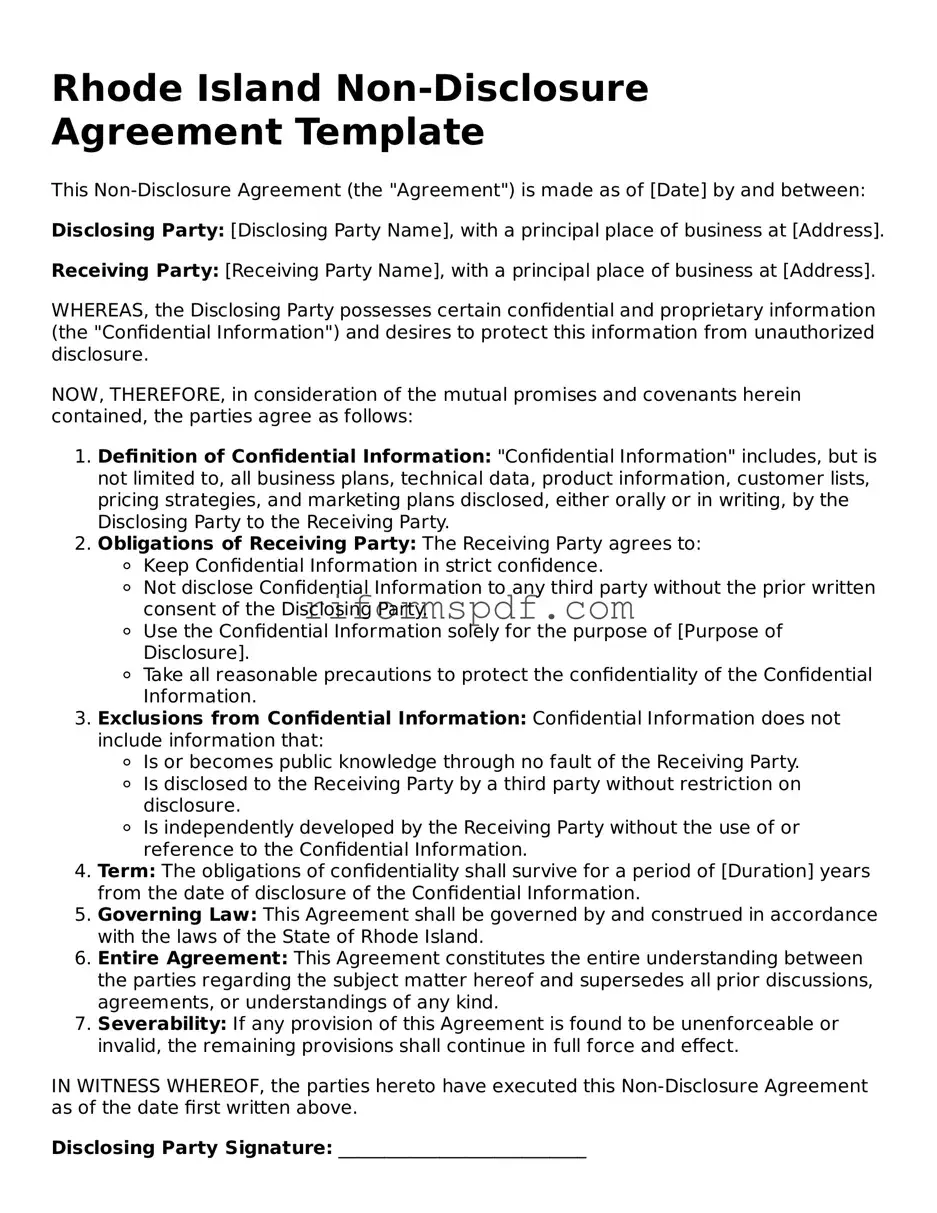Printable Non-disclosure Agreement Form for Rhode Island
A Rhode Island Non-disclosure Agreement (NDA) is a legal contract designed to protect confidential information shared between parties. This agreement ensures that sensitive information remains private and is not disclosed to unauthorized individuals. By establishing clear terms, an NDA fosters trust and collaboration in business relationships.
Launch Editor

Printable Non-disclosure Agreement Form for Rhode Island
Launch Editor
Finish the form now and be done
Edit Non-disclosure Agreement online and skip the paperwork.
Launch Editor
or
⇓ PDF Form
